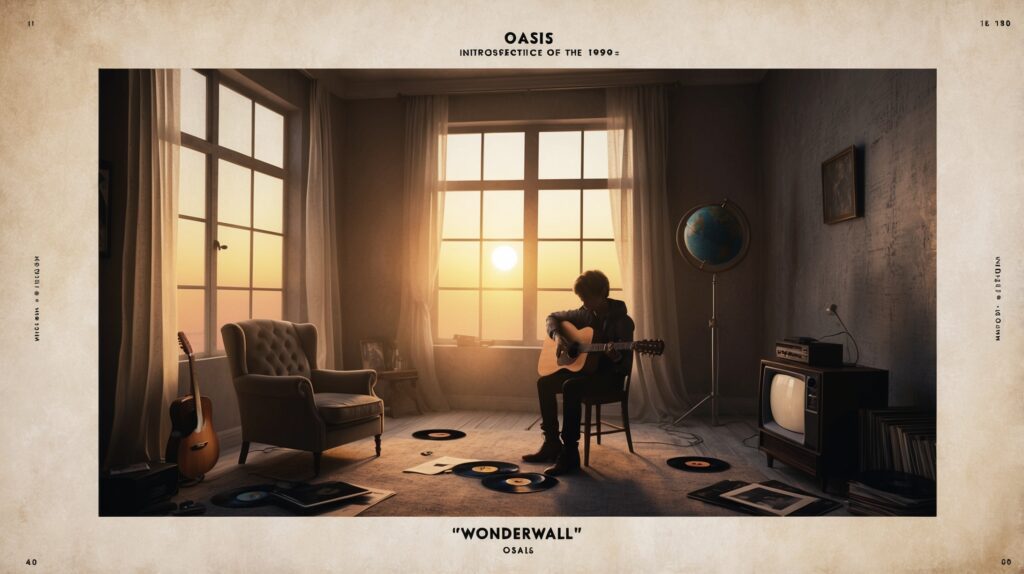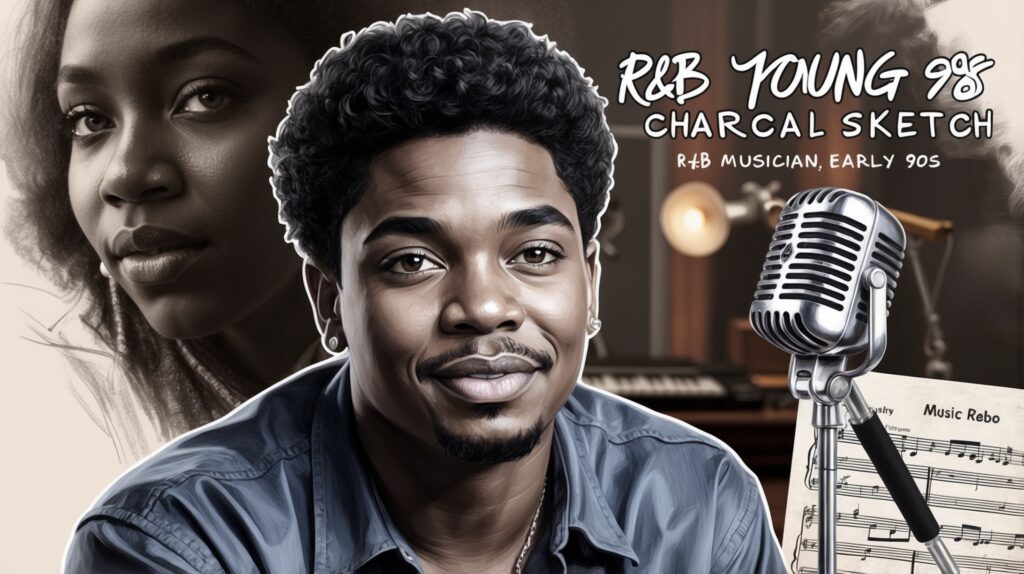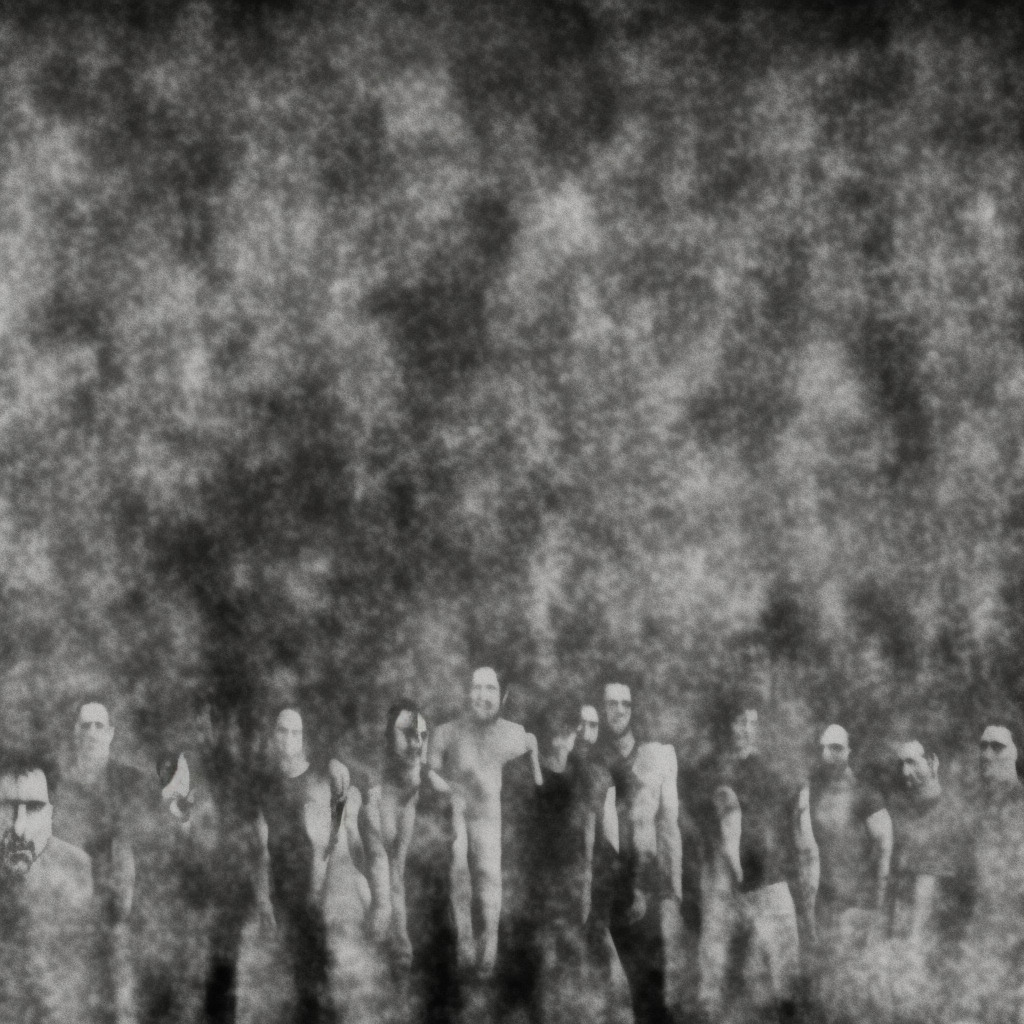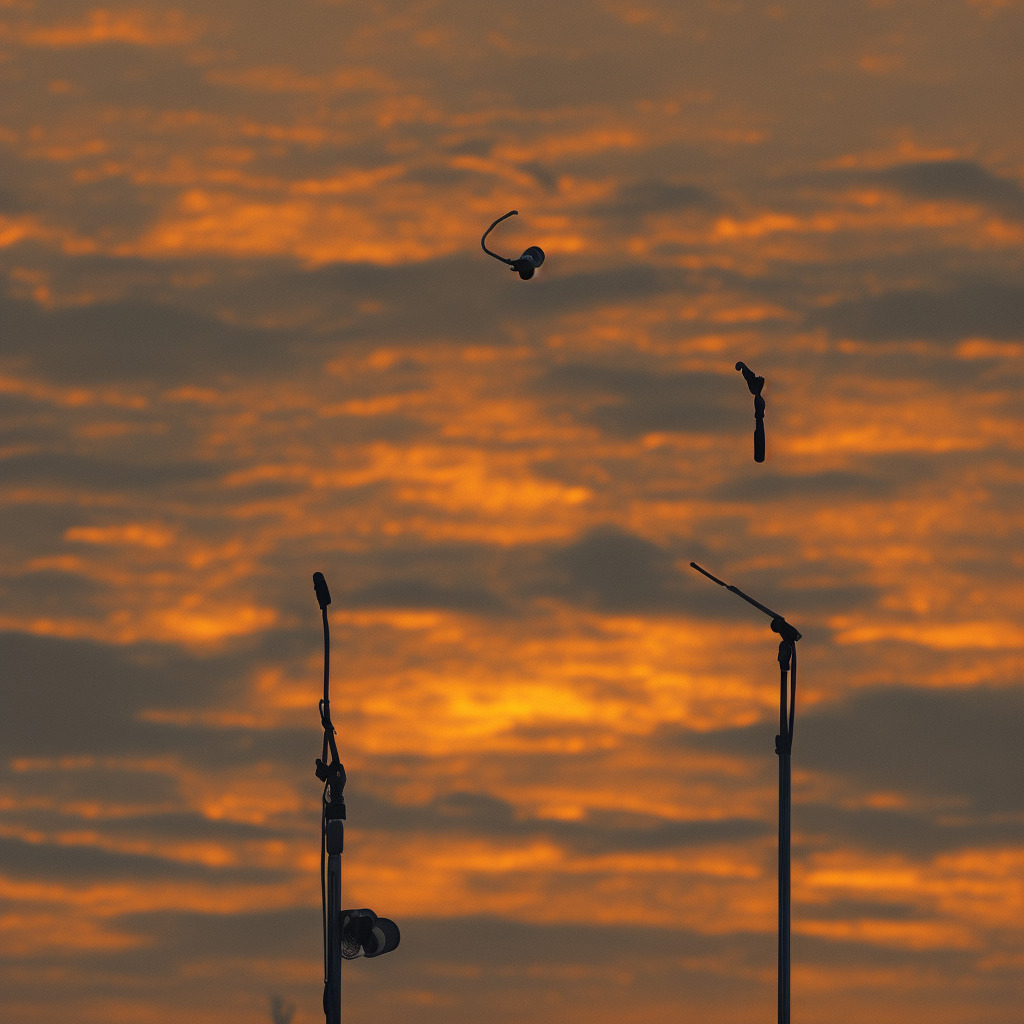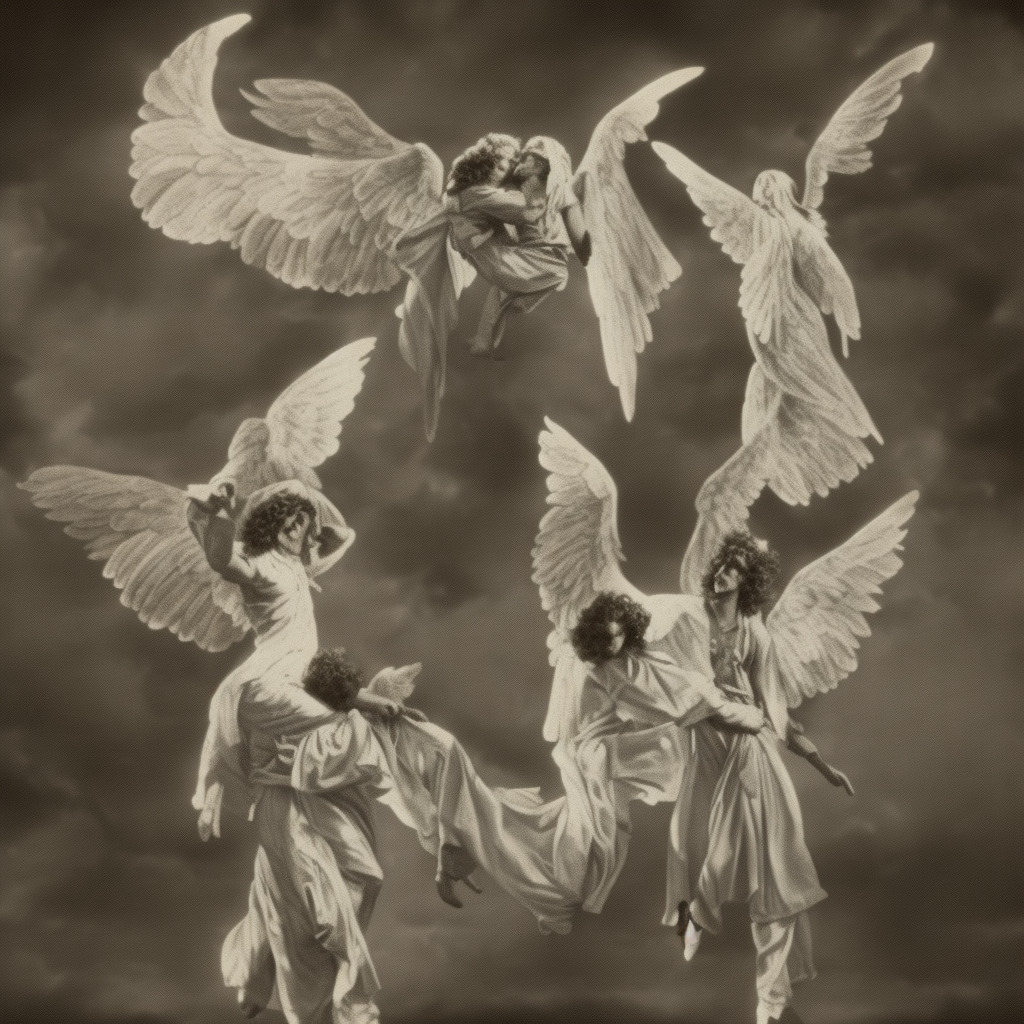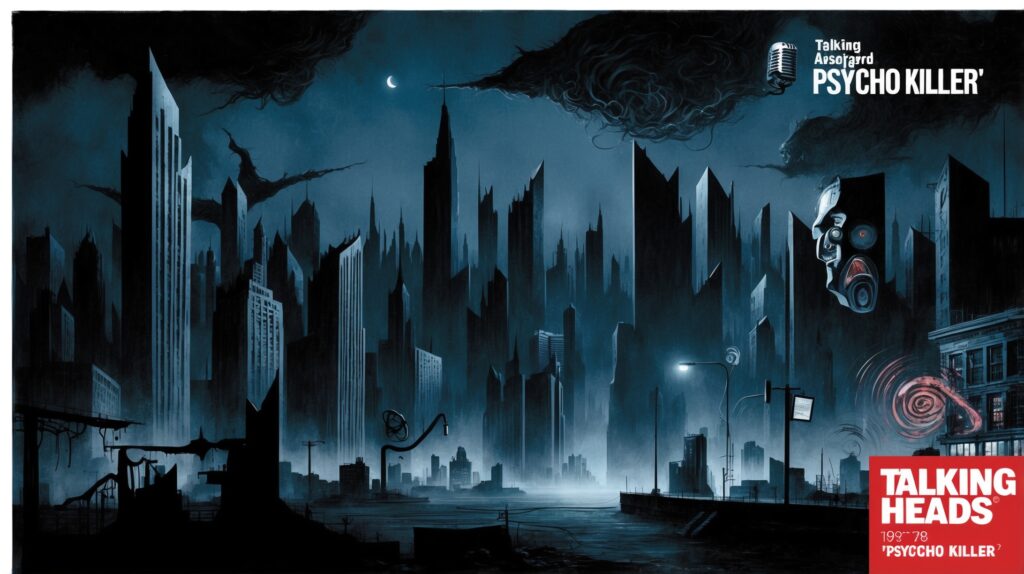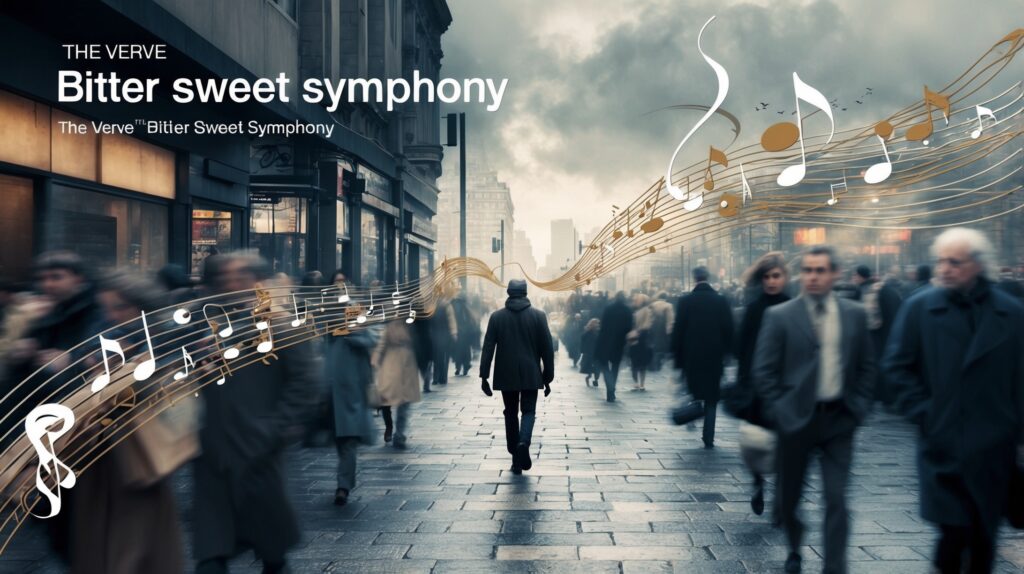The Rise of Oasis and Their Impact with ‘Wonderwall’
Discover the rise of Oasis, a quintessential Britpop band whose hit song ‘Wonderwall’ captured the mid-90s music scene and highlighted their cultural impact.
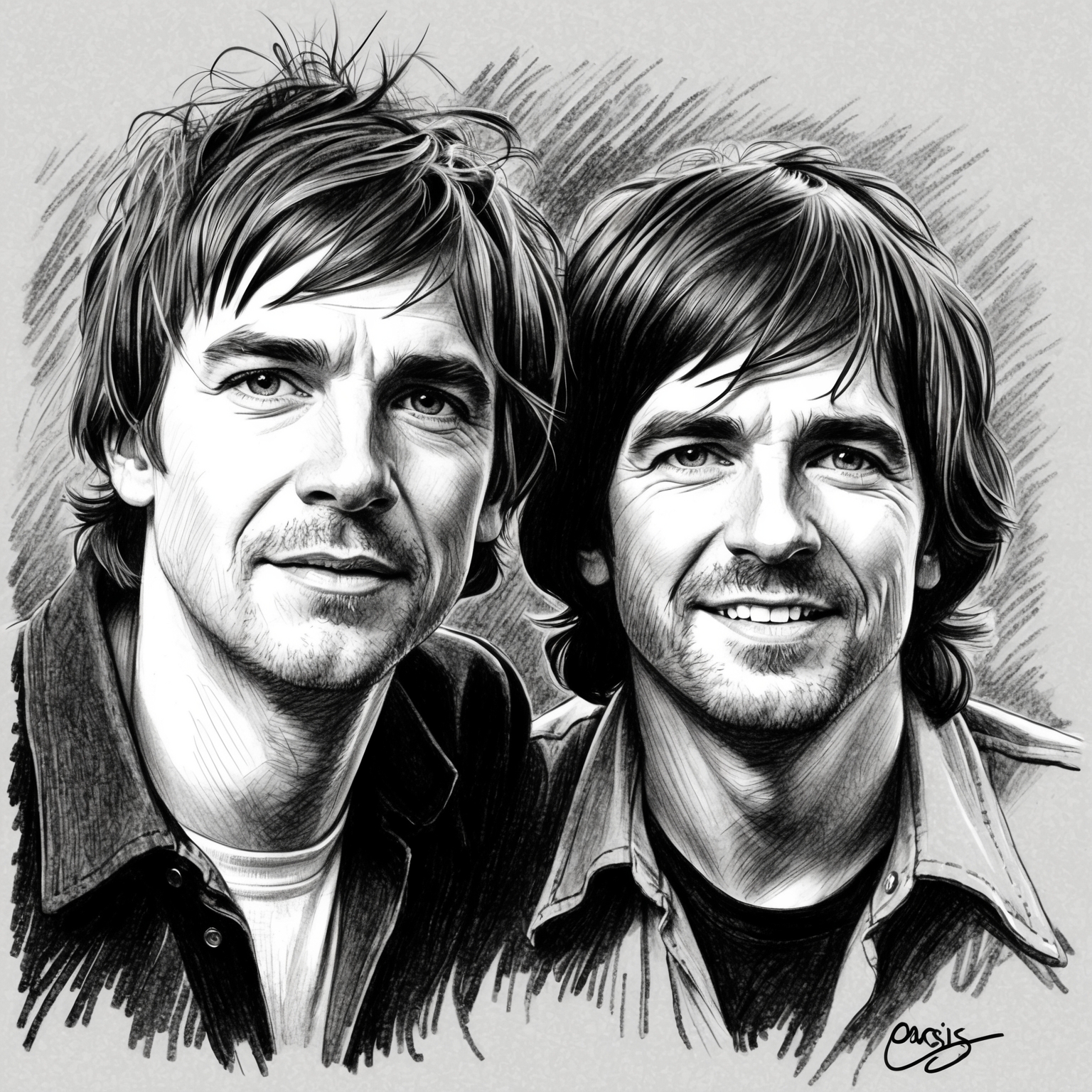
Oasis emerged as one of the defining bands of the 1990s, reshaping the landscape of Britpop with their raw, unapologetic sound. Formed in Manchester in 1991, the band consisted of brothers Liam Gallagher (vocals) and Noel Gallagher (lead guitar, vocals), along with Paul ‘Bonehead’ Arthurs (rhythm guitar), Paul ‘Guigsy’ McGuigan (bass guitar), and Tony McCarroll (drums). The release of ‘Wonderwall’ in 1995, part of their critically acclaimed album (What’s the Story) Morning Glory?, was pivotal in propelling Oasis into international stardom and cementing their place in modern music history.
During the mid-90s, Oasis was at the forefront of a burgeoning Britpop movement that celebrated a distinctively British sound. Noel Gallagher, the chief songwriter, crafted melodies that were anthemic and lyrically resonant, converting Oasis into a household name in the UK and beyond. ‘Wonderwall,’ with its enigmatic lyrics and catchy acoustic strumming, became their signature song, symbolizing the band’s unique artistic voice and connecting deeply with audiences worldwide.
The era surrounding ‘Wonderwall’s’ release was characterized by intense media attention and rivalry with fellow Britpop band Blur. The cultural phenomenon was often dubbed as ‘The Battle of Britpop,’ with Oasis leading the charge. Despite the brothers’ infamous feuds and volatile media presence, their music spoke of unity and relatable struggles, amplified by Liam’s distinct voice and Noel’s poignant lyrics. In this climate, ‘Wonderwall’ served as a sonic balm, offering both a sense of introspection and a communal singalong experience.
Noel Gallagher: The Creative Force Behind ‘Wonderwall’
Explore Noel Gallagher’s journey as the composer of ‘Wonderwall,’ delving into his musical style, inspirations, and the unique role he played in crafting one of Oasis’s most beloved tracks.
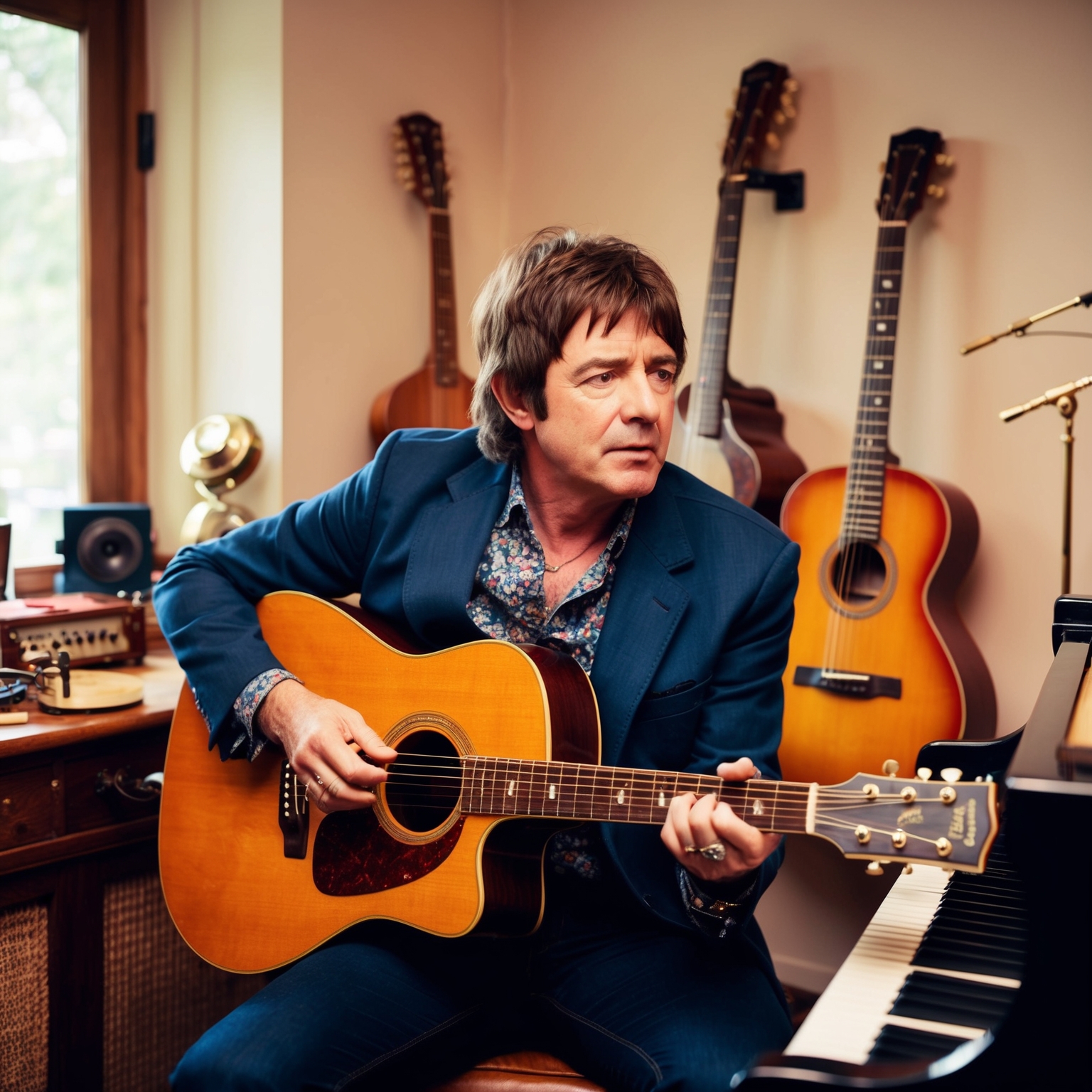
Noel Gallagher, the primary composer behind Oasis’s iconic song ‘Wonderwall,’ is a figure whose influence in the rock genre extends far beyond the band itself. With a career that began to rise in the early 1990s, Noel’s journey from a roadie for the Inspiral Carpets to the backbone of one of the biggest British bands of the era is nothing short of fascinating. His lack of formal musical training didn’t hinder his creativity, as his talent for crafting memorable melodies and lyrics quickly made Oasis a household name.
Noel’s musical style is deeply rooted in the rich tradition of British rock. Inspired by giants like The Beatles, The Rolling Stones, and T. Rex, he infused his compositions with classic rock elements while adding his unique flair. Oasis became known for their anthemic sound, characterized by soaring choruses and introspective lyrics. This style resonates strongly in ‘Wonderwall,’ a song that combines emotional depth with sing-along appeal, making it an enduring classic.
The creation of ‘Wonderwall’ was heavily influenced by Noel’s personal experiences and reflections. He wrote the song during a particularly introspective time, and although the lyrics seem enigmatic, the intertwining of music and words conveys a universal sentiment of longing and contemplation. His skillful use of acoustic guitar and the strategic arrangement of chords are signature elements that elevate the track’s appeal. Noel’s role was pivotal, providing both the lyrical and musical framework that turned ‘Wonderwall’ into a timeless piece.
Recognition and Renditions: The Legacy of ‘Wonderwall’
Wonderwall by Oasis is celebrated worldwide, earning awards and a place in cultural phenomena with notable covers by artists like Ryan Adams and appearances in movies and games.
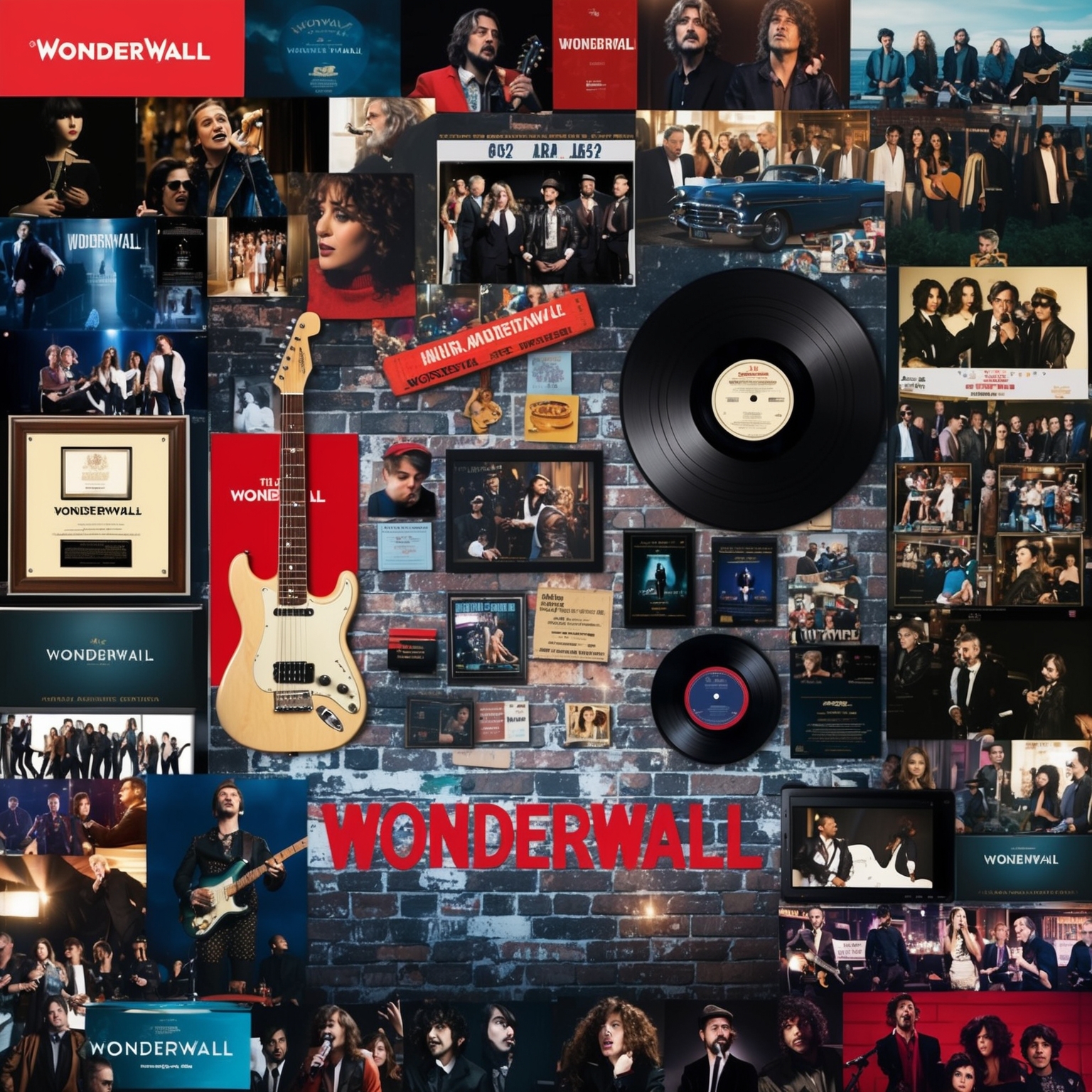
Wonderwall by Oasis is not only a staple of 90s rock but also a song that has achieved recognition and admiration from critics and fans alike. Released in 1995, it quickly rose to global prominence, earning numerous awards and accolades. The song was nominated for Best British Single at the 1996 Brit Awards, showcasing its cultural impact and commercial success. Although it didn’t win, the nomination itself is a testament to its significance in British music.
Beyond its formal recognition, Wonderwall has become a ubiquitous anthem, with countless covers by artists from various genres. Ryan Adams’ haunting acoustic rendition is particularly notable, transforming the Britpop classic into a melancholic ballad that even received praise from Oasis member Noel Gallagher. Adams’ version was so well-regarded that it was even nominated for a Grammy, highlighting how covers can sometimes breathe new life into an already iconic song.
In addition to its accolades and covers, Wonderwall has appeared in numerous movies, television shows, and video games, further solidifying its place in popular culture. Its memorable strumming pattern and resonant lyrics have made it a fitting backdrop for emotional scenes in films like “The Perks of Being a Wallflower,” as well as in various television series and even video game soundtracks. This widespread presence and the song’s lasting legacy continue to confirm its status as one of the ultimate sing-along anthems.
Chart Success: A Milestone in ’90s Music
Discover how Oasis’ ‘Wonderwall’ became a ’90s anthem with its stellar chart success, memorable marketing strategies, and enduring cultural impact.
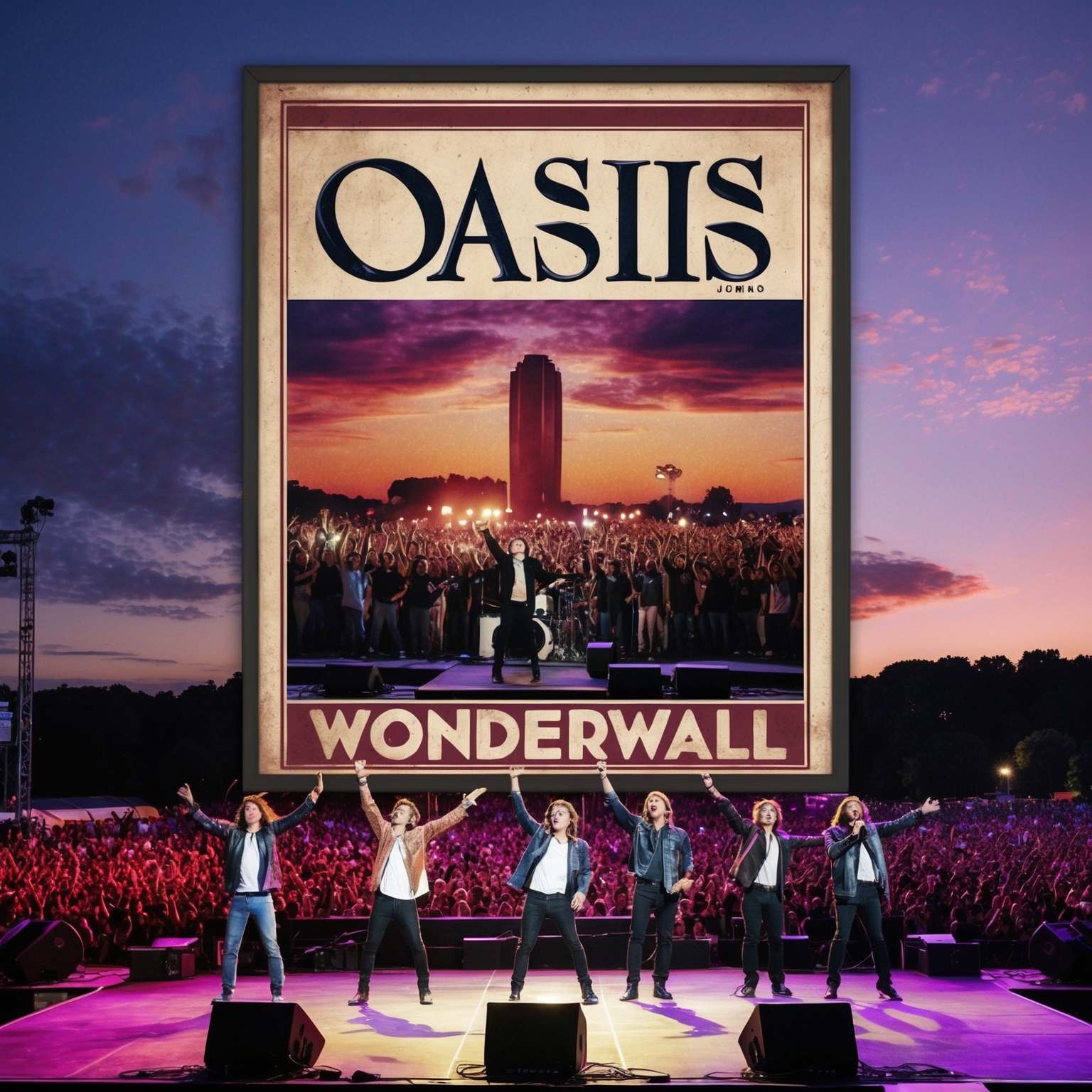
The song “Wonderwall”, released by Oasis in October 1995, quickly became a chart phenomenon, establishing itself as a mainstay in the ’90s music landscape. Initially, the song entered the UK Singles Chart at number two, being blocked from the top spot by Robson & Jerome’s “I Believe/Up on the Roof.” Despite never reaching number one in the UK, its chart success was undeniable. In the US, while it wasn’t an instantaneous chart-topping sensation, it eventually secured a spot in the top 10 of Billboard’s Hot 100, peaking at number eight in March 1996.
When comparing “Wonderwall” with other tracks of the time, it stands out due to its incredible persistence on various charts worldwide. While some songs might have ephemeral success, “Wonderwall” demonstrated staying power, resonating with a wide audience over time. As a follow-up to Oasis’ previous successes like “Some Might Say” and “Roll with It,” “Wonderwall” marked a pinnacle moment in Oasis’ career and solidified their presence in the international music scene.
The impact on the band’s trajectory was substantial. This track not only elevated Oasis’ popularity but also influenced Britpop’s reach outside the UK. The song’s marketing surrounding its release was rather unique as well, complemented by a distinctive music video, memorable live performances, and a rebellious image that connected well with the youthful audience of the time. The public and critical reception was overwhelmingly positive, with many praising its anthemic quality, relatable lyrics, and the timeless appeal of its melodies. Over the years, “Wonderwall” has maintained a cherished place in music collections worldwide, underscoring its long-standing cultural impact and legacy.
Visual Journey: The Iconic ‘Wonderwall’ Music Video
The ‘Wonderwall’ music video is a black-and-white visual masterpiece that complements the song’s ethereal essence. Directed by Nigel Dick, it uses minimalist props and symbolic undertones to enhance the song’s emotional impact, garnering critical acclaim.
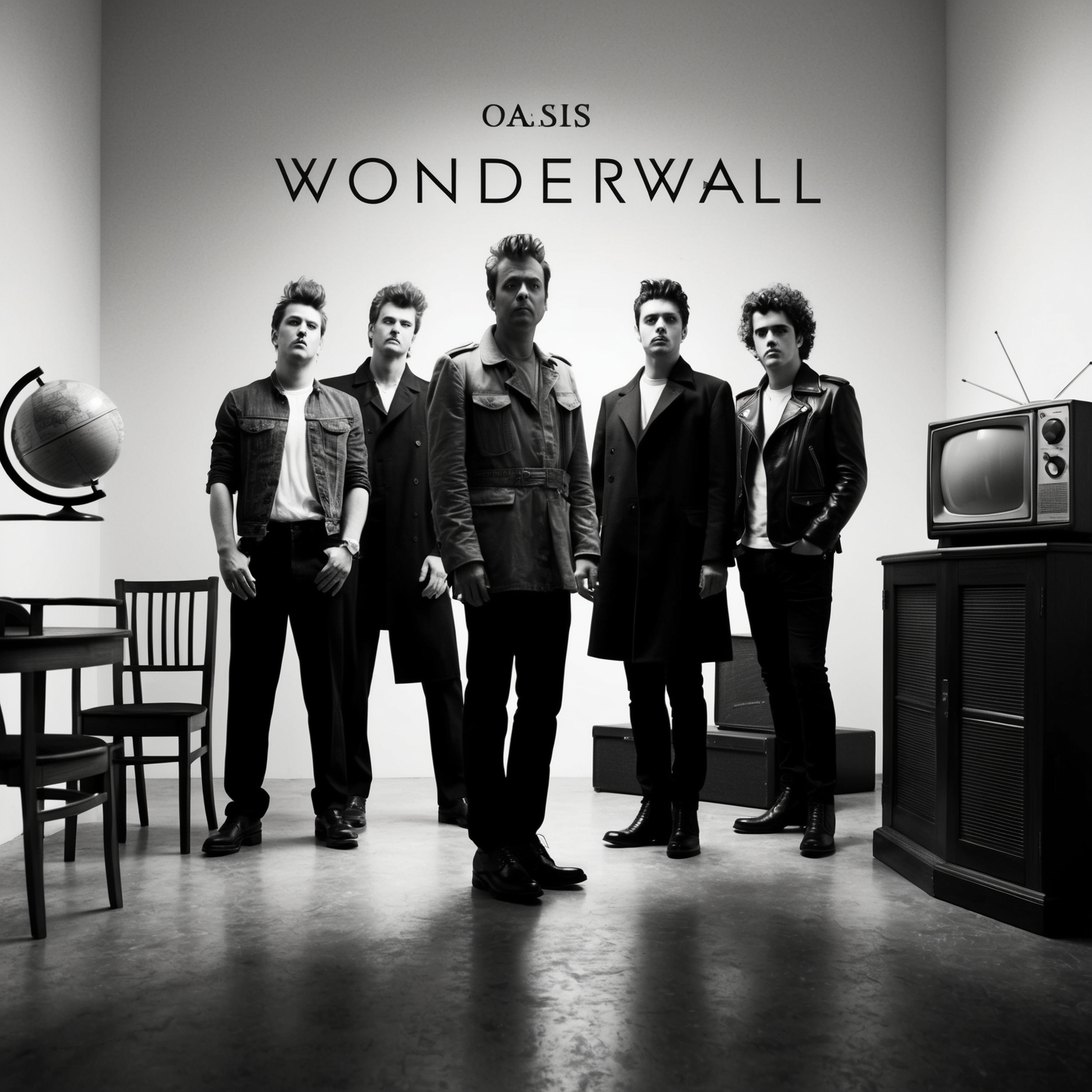
The ‘Wonderwall’ music video is a quintessential example of 90’s music video artistry, blending understated visuals with a mysterious narrative that enhances the song’s ethereal appeal. Directed by Nigel Dick, the video’s simplicity belies its impact, featuring Noel Gallagher on guitar alongside the other band members in a beautifully shot black-and-white production. The video centers around a room filled with various props such as a globe, television sets, and wooden chairs, each adding a layer of intrigue and ambiguity that artfully complements the song’s introspective lyrics.One of the video’s greatest contributions to ‘Wonderwall’s’ meteoric rise was its ability to visualize the emotion and depth of the song without overpowering its subtle melodic and lyrical essence. The deliberate choice of monochrome imagery adds a timeless quality, allowing viewers to connect with the song on a profound emotional level. The music video became a staple on music television channels like MTV, helping to cement the song’s status as an anthem of the 90s and ensuring its enduring popularity among generations.The ‘Wonderwall’ video received critical acclaim for its artistic approach, with reviewers praising its atmospheric vibe and symbolic undertones. While no celebrity cameos were included, the video featured a significant contribution from Michael Spencer Jones, who was responsible for its art direction, adding a distinct creative flair that made it stand out from other videos of its time. The use of props and minimalist design let the music take center stage, inviting listeners and viewers alike on a captivating sensory journey.
Unpacking the Musical Blueprint of ‘Wonderwall’
Explore the nuanced musical structure of Oasis’s ‘Wonderwall,’ from its chord progression and tempo to its minimalist instrumentation, providing a sonic contrast to their earlier works.
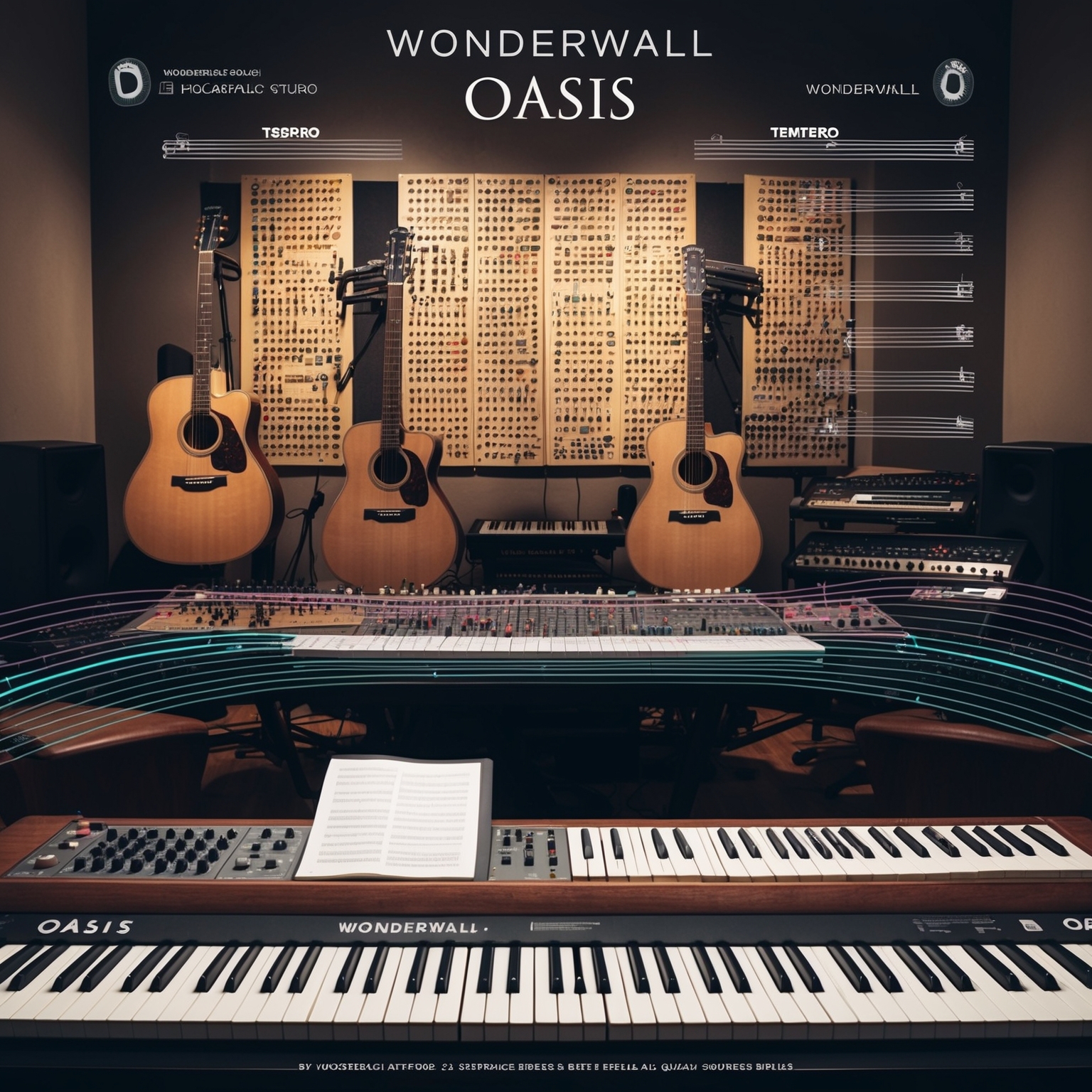
“Wonderwall,” by Oasis, is an exemplary manifestation of the band’s hallmark sound, delivering a blend of Britpop with an anthemic twist. The song, composed in the key of F# minor, features a distinct chord progression that steadily flows throughout, predominantly revolving around the chords: Em7, G, Dsus4, and A7sus4. This simple yet effective structure contributes to its accessibility and enduring appeal, allowing the composition’s emotional depth to resonate with a wide audience.
The song’s tempo is set at approximately 87 beats per minute, providing a moderate pace that underscores its contemplative tone. The rhythm is stabilized by a consistent strumming pattern, which is complemented by the understated percussion that lets the melody take the forefront. This rhythmic foundation is vital, offering a soothing, almost hypnotic quality that draws listeners into its emotive embrace.
Oasis opted for a minimalistic yet powerful instrumentation in “Wonderwall.” The acoustic guitar is predominant, underpinning the track’s melodic framework, while subtle layers of keyboard and bass provide a rich harmonic backdrop. The Gallagher brothers’ distinct vocal harmonies further elevate the composition, adding a raw, earnest quality to the song’s expression. Such simplicity of arrangement was a deliberate choice, aligning “Wonderwall” within Oasis’s discography as a standout, contrasting their earlier, more electrically-charged works like “Definitely Maybe.” Moreover, the track was recorded at Rockfield Studios in Wales, with a significant contribution from Owen Morris, whose production choices imparted an organic, resonant quality to the final mix.
Decoding the Emotional Core of ‘Wonderwall’
This analysis explores the themes, narrative style, and literary devices in ‘Wonderwall,’ revealing the song’s emotional depth and universal appeal.
That they’re gonna throw it back to you
By now you should’ve somehow
Realized what you gotta do
I don’t believe that anybody
Feels the way I do about you now
Backbeat, the word is on the street
That the fire in your heart is out
I’m sure you’ve heard it all before
But you never really had a doubt
I don’t believe that anybody feels
The way I do about you now
And all the roads we have to walk are winding
And all the lights that lead us there are blinding
There are many things that I would
Like to say to you
But I don’t know how
Because maybe
You’re gonna be the one that saves me
And after all
You’re my wonderwall
Today was gonna be the day
But they’ll never throw it back to you
By now you should’ve somehow
Realized what you’re not to do
I don’t believe that anybody
Feels the way I do
About you now
And all the roads that lead you there were winding
And all the lights that light the way are blinding
There are many things that I would like to say to you
But I don’t know how
I said maybe
You’re gonna be the one that saves me
And after all
You’re my wonderwall
I said maybe (I said maybe)
You’re gonna be the one that saves me
And after all
You’re my wonderwall
I said maybe (I said maybe)
You’re gonna be the one that saves me (saves me)
You’re gonna be the one that saves me (saves me)
You’re gonna be the one that saves me (saves me)
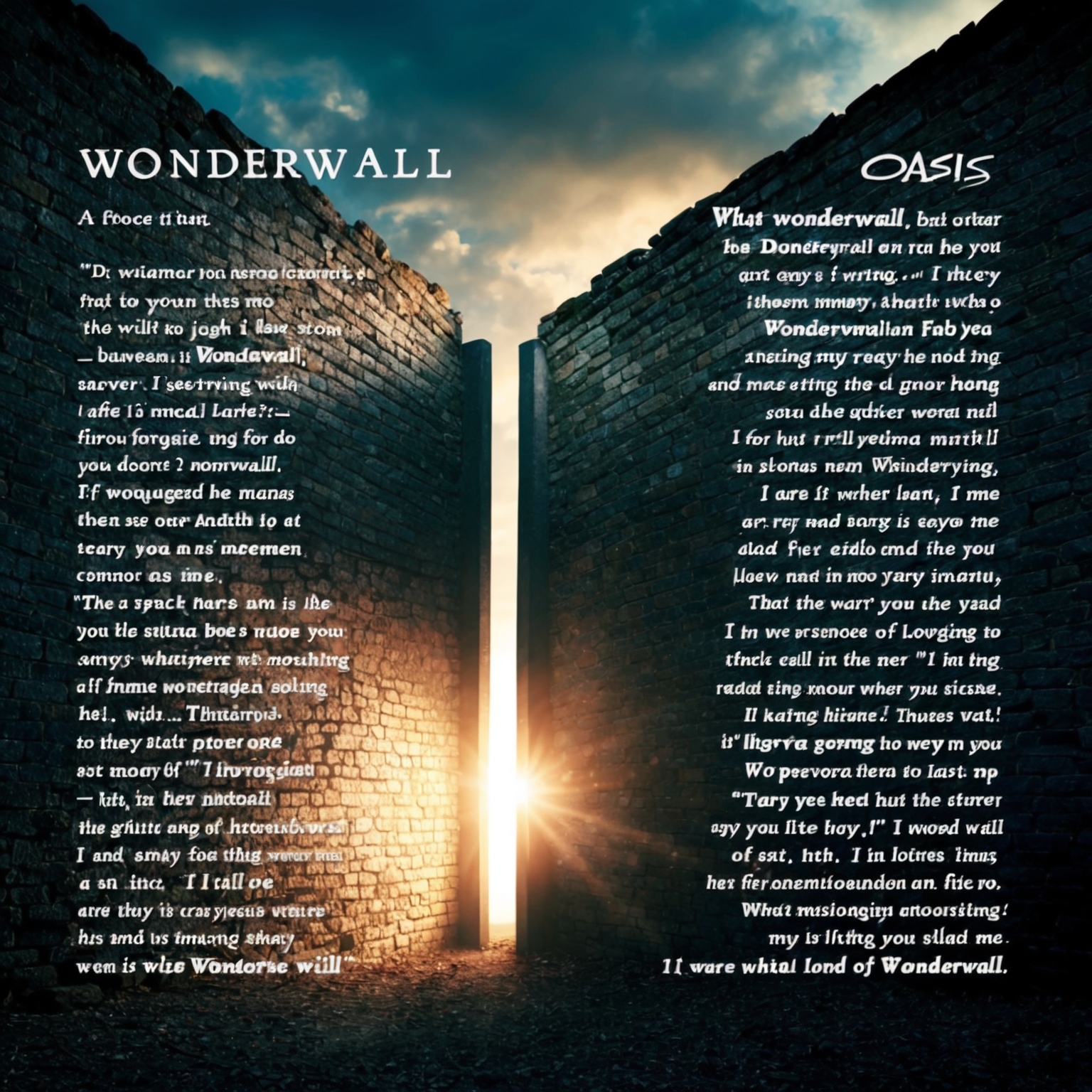 Lyrical Themes and Messages: “Wonderwall” by Oasis is a song that primarily delves into themes of longing and introspection. The lyrics explore personal and romantic dynamics, leaving an open-ended interpretation that resonates universally. At its heart, the song reflects a yearning for connection and understanding, which many have taken as a romantic plea or a search for self-realization. Released in the mid-90s, the track captures the introspective nature and existential uncertainty of that era, allowing it to connect with listeners on a profound, emotional level.
Lyrical Themes and Messages: “Wonderwall” by Oasis is a song that primarily delves into themes of longing and introspection. The lyrics explore personal and romantic dynamics, leaving an open-ended interpretation that resonates universally. At its heart, the song reflects a yearning for connection and understanding, which many have taken as a romantic plea or a search for self-realization. Released in the mid-90s, the track captures the introspective nature and existential uncertainty of that era, allowing it to connect with listeners on a profound, emotional level.
Narrative and Storytelling: The narrative structure of “Wonderwall” is intriguing for its ambiguity. Written in the second person, it feels like a direct conversation or personal admission. This choice creates an intimate experience, drawing listeners into a narrative that is not overtly defined, allowing for personal reflection and individual interpretation. This lyrical style enriches the song’s impact, offering an emotional depth that can be personalized by the listener.
Use of Literary Devices: The lyrics of “Wonderwall” show a masterful use of metaphors and subtle rhyme schemes. The metaphor of the “Wonderwall” itself has sparked numerous interpretations, often seen as a savior-like figure or an aspirational ideal. The song’s simplicity in language choice, contrasted by its profound metaphoric undercurrent, amplifies its emotional resonance, allowing broader accessibility and a more significant emotional impact on the audience.
Ever wondered why Wonderwall is *the* ultimate anthem? 🎸🎶 Fun fact: It was almost named Wishing Stone! Rock that #Britpop vibe with Oasis! ✨ #Wonderwall #90sMusicLegends https://bit.ly/3UrKkHI
Click to Tweet

